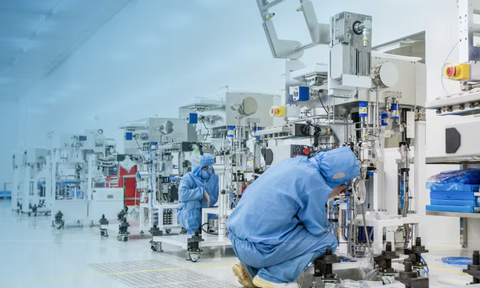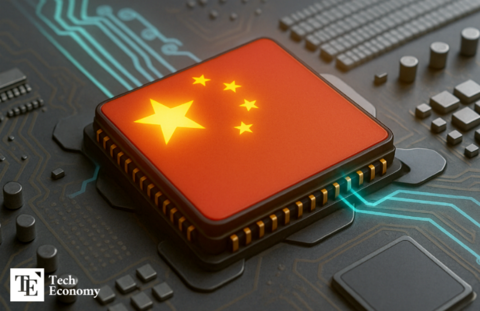Can Broadcom save Intel? What investors should know about the latest deal rumors.
Input
Changed
Intel’s Struggles: Why Does It Need Saving? Broadcom’s Role: How It Can Help Intel Challenges and Boons in a TSMC Dea
Intel, once the undisputed leader in the semiconductor industry, is now at a critical crossroads. The company is struggling with lagging manufacturing technology, massive losses in its foundry business, and increasing competition from AMD and TSMC. Reports indicate that Broadcom and TSMC are separately considering acquiring parts of Intel’s business, leading to speculation that Intel could be broken up into different units.
Here’s a breakdown of how Broadcom could "save" Intel and why this potential deal matters:
Intel’s Struggles: Why Does It Need Saving?
Intel has been in decline for years, and the following challenges highlight its current predicament:
Losing Ground to AMD & TSMC
AMD has been chipping away at Intel’s dominance in the CPU market, especially in the desktop and server segments.TSMC has surpassed Intel in semiconductor manufacturing, leading companies like Apple, Nvidia, and Qualcomm to rely on TSMC for their most advanced chips. Intel’s attempt to build a competing foundry business (Intel Foundry Services) has been a money-losing venture ($13 billion in losses on $17.5 billion in revenue).
Intel’s Failed Manufacturing Model
Unlike competitors like AMD and Nvidia, which focus only on chip design, Intel has historically done both chip design and manufacturing. Its manufacturing arm (fabs) is no longer competitive, making it difficult to keep up with TSMC’s advanced process nodes. This dual-role strategy is becoming unsustainable, with many analysts arguing that Intel needs to split its design and manufacturing businesses.
Financial & Stock Market Pressure
Intel’s stock price dropped nearly 60% in 2023 before rebounding on news of a potential Broadcom deal. Investors lack confidence in Intel’s current strategy, fearing that its foundry business will continue bleeding money. The company has burned through $40 billion in cash over three years, trying to catch up to TSMC.
Broadcom’s Role: How It Can Help Intel
Broadcom, a semiconductor powerhouse known for its aggressive acquisition strategy, is reportedly interested in Intel’s chip design and marketing businesses. If a deal materializes, Broadcom could play a major role in stabilizing Intel. Here’s how:
Separating Intel’s Chip Design Business from Its Struggling Foundry
Broadcom is interested in Intel’s x86 CPU division, which includes consumer and enterprise processors. If Broadcom takes over Intel’s design business, it could: Refocus Intel on high-margin products rather than trying to compete with TSMC in manufacturing.
Cut costs and improve efficiency, a Broadcom specialty.
Ensure Intel CPUs remain competitive against AMD and ARM-based chips. This would allow Intel to offload its foundry division separately, either through a sale to TSMC or another investor.
Broadcom’s Cost-Cutting & Operational Expertise
Broadcom has a history of acquiring struggling semiconductor firms and turning them profitable.
It could reduce Intel’s operational inefficiencies, streamline production, and improve profit margins.
Broadcom is known for raising prices after acquisitions, which could boost Intel’s CPU business profitability.
Leveraging Broadcom’s AI & Networking Strengths
Broadcom is a leader in AI and networking chips, two key growth areas for the semiconductor industry. If Broadcom acquires Intel’s CPU division, it could: Integrate Intel’s processors with its AI-focused chips, making them more competitive. Expand Intel’s enterprise computing presence, leveraging Broadcom’s stronghold in data centers and networking.
The Role of TSMC: What Happens to Intel’s Foundry?
While Broadcom is reportedly interested in Intel’s chip design business, TSMC is eyeing Intel’s manufacturing (fabs) business.
Why Would TSMC Want Intel’s Fabs?
Intel’s foundry business has been struggling financially, but its fabs could still be valuable assets. TSMC could take control of Intel’s fabs to expand its U.S. manufacturing footprint. This move aligns with the U.S. government’s push for domestic chip production, as TSMC already operates fabs in Arizona.
Challenges and Boons in a TSMC Deal
Geopolitical issues: U.S. officials may not want a foreign company controlling Intel’s manufacturing.
China’s potential opposition: Given the ongoing U.S.-China tech war, Beijing might resist TSMC gaining more dominance. Intel’s national security role: Intel is the only major U.S.-based advanced semiconductor manufacturer, so Washington may intervene to prevent a foreign takeover.
Potential Roadblocks to the Broadcom-Intel Deal
While a Broadcom-Intel deal makes strategic sense, several hurdles could complicate or prevent it:
Regulatory Challenges
Regulators may block the deal if it results in too much market consolidation. Given Intel’s role in national security and AI, Washington might oppose the sale of key assets to Broadcom. Similarly, Intel’s investors might reject the deal if they believe the company can turn around without selling its core businesses. Broadcom would likely need to finance the acquisition with debt or stock, which might trigger short-term market turbulence.
Will Broadcom Deliver on Execution?
Broadcom has a mixed track record with acquisitions—some deals have succeeded, while others have resulted in product delays and layoffs. Successfully redesigning Intel’s x86 CPU business will require considerable investment in R&D.
What Does This Mean for Intel’s Future?
There are various conceivable outcomes. Firstly, there is a possibility that Intel will remain independent. However, given the circumstances, it is least likely.
Secondly, it is possible that Intel wants to improve its foundry business while preserving its CPU division. This will require significant investment, and as a result, Intel will continue bleeding funds.
The third option is Broadcom ends up buying Intel’s chip design business. Under this scenario, TSMC takes over the fabs, while Broadcom restructures Intel’s CPU division, making it more competitive. Consequently, this helps Intel’s foundry business become profitable.
The fourth option is Intel becomes fully acquired by a larger entity such as a total takeover by Broadcom, TSMC, or a U.S. government-backed consortium. However, this scenario is also unlikely since it will cause major regulatory and geopolitical issues concerning China and the US.
Broadcom as the Lifeline of Intel
Broadcom could give Intel a vital lifeline if an agreement is reached by separating Intel's CPU design division from its faltering foundry business, enhancing x86 processors' competitiveness and cost effectiveness, and utilizing data center and AI synergies to strengthen Intel's position in the market. However, a number of factors, such as market attitude, U.S. government interference, and TSMC's possible involvement, will determine whether this plan is successful. A successful Broadcom-Intel collaboration would enable Intel to recover some of its earlier success and maintain its position as a significant player in the semiconductor sector.





















